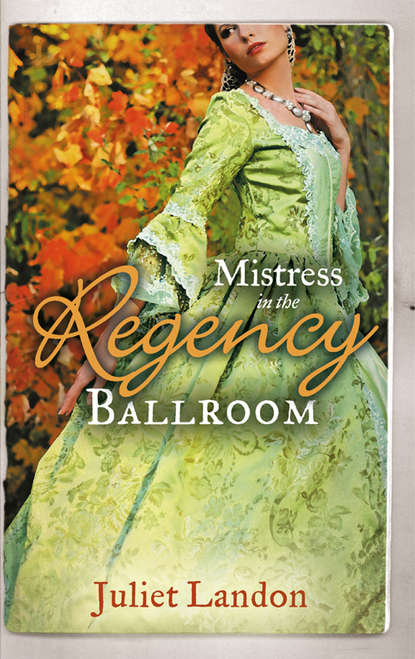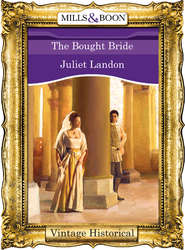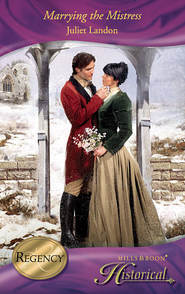По всем вопросам обращайтесь на: info@litportal.ru
(©) 2003-2024.
✖
Mistress in the Regency Ballroom: The Rake's Unconventional Mistress / Marrying the Mistress
Настройки чтения
Размер шрифта
Высота строк
Поля
‘I shall not be stuck in it all day, Mama,’ she had said. ‘It’s not going to be that kind of seminary. And they won’t be much younger than seventeen, just on the eve of their coming-out. There’s so much they ought to know at that age,’ she added, remembering the deficiencies of Mrs Wood’s Seminary for the Daughters of Gentlemen. ‘If Papa had not talked to me about interesting things, I would have been as tongue-tied as most of the other girls at Mrs Wood’s.’
‘And tongue-tied is one thing no one could ever accuse you of being,’ her mother retorted, not intending the compliment. ‘But I wish you would consider my feelings for once, Letitia. How I’m going to explain this to my friends I really don’t know. They may look on eccentricity in the older generation as something to be expected, but no one expects it from a twenty-four-year-old who ought to be turning her mind to raising a family. It’s most embarrassing.’
‘It was never my wish to be an embarrassment, Mama, and I have nothing against men, or marriage, or families, either. But I have never been able to understand why educating one’s mind is acceptable in a man, but frowned on in a woman. Papa never thought women’s brains were inferior to men’s, did he? It was he who taught me to read.’
‘Your Papa, God rest his soul, had radical views about most things, Letitia, but when he left you a sizeable legacy to do with as you pleased, I doubt if he ever thought it would please you to run completely wild, buy your own house and make an utter cake of yourself.’
‘Uncle Aspinall doesn’t think so, Mama. And thank heaven for it. Without his help I don’t think I could have managed half so well.’
This comparison did nothing to mollify Lady Boyce. ‘Aspinall,’ she snapped, ‘has no children of his own, which is why he knows so little about what parents want. I hardly expected he would side with me on this matter, and I was right as usual, but if he likes the idea of having a blue-stocking for a niece, there’s little I can do about it. Indeed I suspected you were inclined that way when you tried to conceal a Latin dictionary in your reticule when we went to Lady Aldyth’s rout party. Was there ever such a trial to a devoted mother?’ Lady Boyce’s imposing figure described a convincing swoon that would have done justice to Mrs Siddons, landing gracefully on a striped brocade settee with lion’s paws feet.
It was from both parents that Letitia had inherited the height that had not afflicted her sisters to the same extent. For a woman, she was taller than average, which had never done much to help when she was obliged to look down upon so many of her dancing partners. Sitting down with men to talk was more comfortable for both parties, Letitia being blessed with a serene loveliness that, combined with an ability to talk interestingly and without affectation on any number of current affairs, captivated the more liberal-minded men of her acquaintance. Whether it helped for her to have fine ash-blonde hair that strayed in wisps over her face and neck resisting all efforts to contain it, or to have large eyes the colour of thunderclouds rimmed by unusually dark lashes, or to have a figure that Juno herself would have been proud to own, were not things that occupied Letitia’s mind, for in the wide unchartered territory of men’s preferences she was lamentably ignorant.
The priority in most men’s minds, her mother had told all three of her daughters, were that they should remain innocent, be adept at all the social graces and, above all, show no inclination to be bookish. If there was anything a man deplored above all else, it was a woman who knew more than he did on any subject except domestic matters. The twins had no wish to argue with that, but Letitia understood that it was far too generalised to be true, for there were men she knew personally who had accepted her exactly as she was, bookish or not. Unfortunately for Lady Boyce, these same men were not interested in marrying her eldest daughter, either, because they were already married or too engrossed in their own special subjects to be leg-shackled to a wife and family.
If Letitia was affected by this lopsided state of affairs, she never let it show except, occasionally, by an inclination to pity both the men and women who lived by such shallow conventions. Nevertheless, the stark truth was that book-learning and marriage rarely mixed and that, as she had now earned a reputation as being ‘Lady Boyce’s unconventional eldest daughter’, she was highly unlikely to find a mate of haut ton as her mother would have preferred.
‘What will people say?’ whined Lady Boyce for the fiftieth time. ‘That I threw you out to make shift for yourself? You have no need to earn your own living, Letitia. It’s simply not done by women of your standing, you know.’
But it had been done, and so far Lady Boyce had been too busy to visit Number 24 Paradise Road, relying on the twins’ information to fuel the smouldering fires of her disapproval. Naturally, she urged them to tell Letitia about the ball she was planning, the guests she would be entertaining, the visits, the soirees, the titled men they were meeting. They had brought her a copy of the newly published novel by the author of The Infidel, which all society had talked about last year. They were sure it would not be available in Richmond for some time, though their mother had deemed it a wasted gesture. ‘Lettie will not read that kind of thing,’ she had told them.
‘What kind of thing, Mama?’ they had asked, innocently.
‘That kind of thing. Novels. Racy novels.’
‘Is it racy, Mama?’
‘Oh, I don’t know, dears. It looks racy to me. What’s it called? Waynethorpe Manor? Sure to be.’
‘So you haven’t read it, Mama?’
‘Me? Read such rubbish? Why, no, of course not.’
‘Then how can you judge it, Mama?’
‘Oh, I flicked through it when I was in Hatchards, and I could tell. I don’t see Letitia reading it unless it explains how to tell a Turner from a Reynolds, which I’m sure I don’t care about unless there’s a difference in the price.’
Meant to tease, the conversation veered predictably into areas about which Lady Boyce had strong views, but no knowledge. The twins smiled and took the book to Richmond, just the same.
Letitia picked up the brown paper package and opened it, finding the three volumes of brown leather tooled with gold lettering. She peeped at the title page of the first one.
Waynethorpe Manor
A Novel in Three Volumes by the Author of The Infidel
London
Printed for the Mercury Press, Leadenhall Street
1814
She closed it again, smiling. But seven faces could not conceal their curiosity. ‘May we read it, Miss Boyce? Please may I be the first? Is it the new one? The Infidel was so romantic. My mama told me I should not be reading it, but she read it. I know she did.’
Letitia chuckled. ‘Perhaps I shall look through it first, and, if I think it’s suitable, I’ll lend you my copy. I would not wish to offend your mamas. Now,’ she said, glancing at the clock on the mantelpiece, ‘it’s almost time for our accounting lesson. Mr Waverley will be arriving at any moment, and we must not keeping him waiting. Leave your paintings as they are, and we’ll come back to them after tea. Come, girls, into the parlour.’
Rewrapping the volumes, she carried them away to safety.
The Honourable Bartholomew Waverley was indeed arriving on foot as she spoke, to take the Friday lesson that would, in theory at least, initiate Miss Boyce’s pupils into the mysteries of household accounting that every good wife, wealthy or not, needed to know. It was the kind of thing Letitia included in her curriculum, which other seminaries did not, and so far there had been plenty of parents who agreed with her that it was essential learning. Mr Waverley had been a friend of Letitia’s since they had met at a lecture to which her father had taken her many years ago in London. By good fortune, he lived in a beautiful house that faced north-west across Richmond Green, and his willingness to become involved as escort, guide and tutor was one of the reasons why Letitia was sure she could take on such a responsibility. Their relationship was warm, but never more than that—more like that of brother and sister. They were both quite content to have it so.
Mr Waverley was not only a reliable friend, but also an excellent companion who saw nothing remarkable in Letitia’s exceptional interest in subjects deemed to be a man’s territory. They attended meetings and discussion groups together where his keen mind and knowledge of things scientific and mathematical balanced nicely against her preference for the arts subjects. He was, in fact, the perfect friend. He stood with his feet upon the fanlight’s semi-circular shadow that fell upon the Axminster. ‘I’m standing on your cheese segments.’ He grinned.
‘So that’s what I can smell. And, yes, you are invited to dinner. Come inside, Bart. The girls are in the parlour already.’
‘With Gaddy?’
‘Yes, Gaddy’s in there, too.’
Miss Gaddestone was Letitia’s cousin who lived with her by dint of a reciprocal arrangement whereby she received board and lodging for her services as chaperon whenever she was required. And since several of the tutors employed by Letitia were gentlemen, Miss Gaddestone was always there in a corner of the room for the sake of propriety and to keep an eye on good manners. She was kindly and well liked, a stickler for correctness who took her duties very seriously, sitting there with her basket of sewing, saying little, but hearing all.
The exchanged smile needed no explanation, for both of them were aware that one or two of the pupils harboured fantasies about Mr Waverley that had very little to do with accounting. He was tall and pleasant-faced, brown-haired and courteous with well-manicured hands, and eyes that smiled easily. He was also the son of a viscount, wealthy and unmarried, quite a catch for any woman, if he had shown the slightest interest. Naturally, the pupils were sure that he and Letitia were more than just good friends.
‘I’ll go in, then,’ he said.
‘Yes. The twins have been.’
‘Oh? Not Lady Boyce?’
‘No. They brought me something, Bart.’
He studied her laughing eyes, almost level with his. ‘Not the book? But you’ve already got your copies. Did you tell them?’
‘Heavens, no. Mama’s sure it’s not suitable reading.’
‘She’s probably right, dear heart.’ He smiled. ‘So do I get to read it now? Come on, that’s part of the bargain, remember.’
‘All right. You can take it home after dinner. Go on in.’
‘Promise?’
‘I promise.’
It was getting late by the time Mr Waverley left, though Letitia had not minded having the three boarders stay up for an extra hour or two of good conversation, since the morrow would be Saturday and free from lessons. Miss Gaddestone had contributed with hilarious tales of her childhood in rural Wales, and their next-door neighbour at Number 22, Mrs Quayle, with whom the three young ladies had their rooms, had connections with society women that made her a fount of fascinating information, mostly of a cautionary nature.
By the light of a single oil lamp, Letitia unlocked the drawer of her writing-desk and carefully lifted out a scuffed leather-bound book where the pages of the first half had grey well-thumbed edges, the second half still pristine. It seemed to open by itself at the last page of handwriting.
Unscrewing the silver top of her inkwell, she peered in to check the shine of liquid against the light, picked up her quill and studied its sharpened end. ‘Stop prevaricating,’ she whispered to it. ‘Go on, write it. It’s what you want to say. Write it, before you forget.’ Obediently, the quill dipped and began to describe.
He sat the huge bay gelding like a god, scowling at the sun until he was obliged to acknowledge her, though she did not wish it. His eyes she could not see, though she knew how they looked at her, how they refused to light, but scanned in one glance from head to toe, touching a nerve of her anger, making her fists clench, halting her breath. She said something ungracious that did not, as she had intended, make him smart, but dismiss her as too clever by half and not worth his time.











